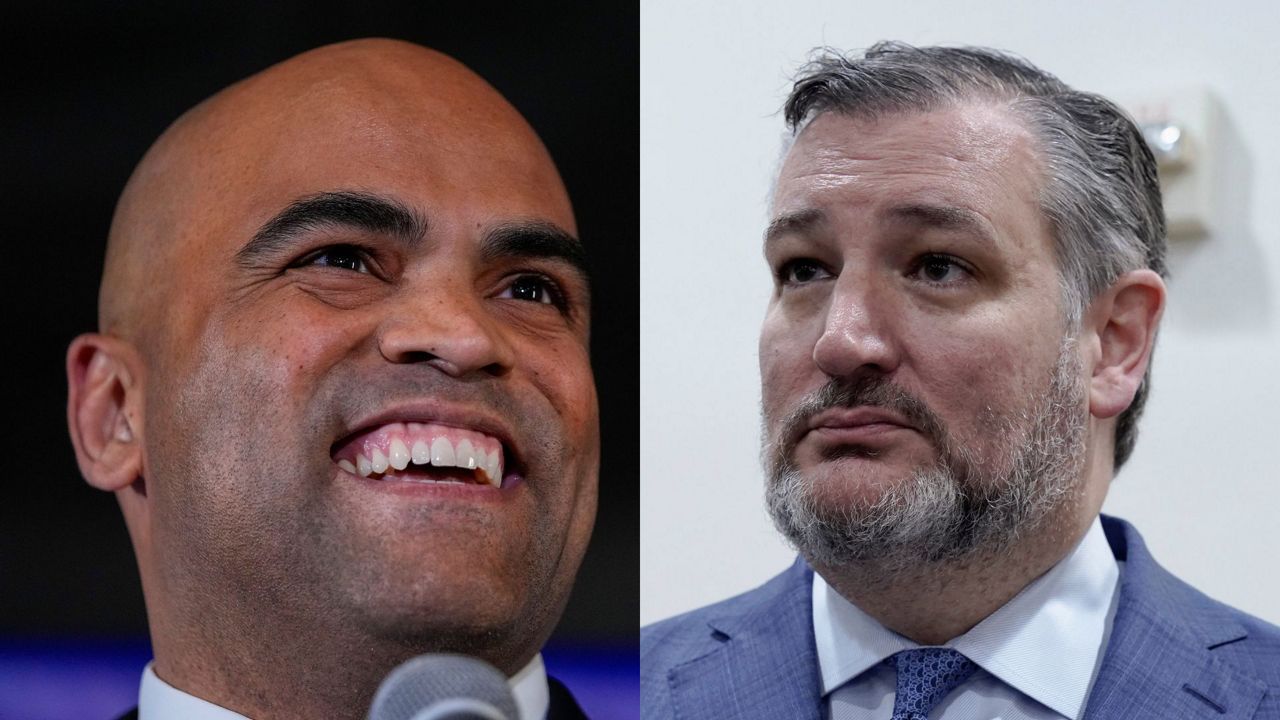Poll Shifts in the Texas Senate Race: Allred Takes the Lead Over Cruz
Dallas— In what appears to be a striking turn in the early stages of Texas’ 2024 U.S. Senate race, a new poll has surfaced showing Rep. Colin Allred (D-Dallas) marginally ahead of incumbent Sen. Ted Cruz (R-Texas). This marks a significant shift as Texas has historically leaned Republican in statewide elections, particularly in the Senate.
Polling Details and Implications
The poll, conducted by Morning Consult from September 9 to September 18, surveyed 2,716 likely voters across Texas. The results indicate Allred leading Cruz by 1 percentage point, with Allred at 45% compared to Cruz’s 44%. This margin falls within the poll’s 2-point margin of error, making it a statistical tie. Despite the narrow gap, Allred’s lead is significant as it reflects a burgeoning competitiveness in a race that many once thought would favor the incumbent.
Allred took to X (formerly known as Twitter) to express his enthusiasm about the poll findings, stating he was "fired up and ready to WIN!" He emphasized a key aspect of any campaign—mobilizing voter turnout—during an appearance on MSNBC, cautioning that “polls only say so much.” This highlights a fundamental truth about electoral politics: surveys can capture sentiment but translating that sentiment into votes is a challenge candidates must address.
Upcoming Debate: A Critical Moment
Adding to the excitement, both Cruz and Allred’s campaigns quickly announced their mutual agreement to participate in a debate scheduled for October 15, just three weeks ahead of the November 5 election day. The debate will be hosted by WFAA, an ABC affiliate based in Dallas, providing a prominent platform for both candidates to articulate their visions and counter each other’s narratives directly to Texas voters.
Debates often serve as pivotal moments in election cycles, potentially swaying undecided voters or solidifying preferences. For Allred, this opportunity could be crucial in maintaining momentum generated by this latest polling.
Shifts in Polling Trends
Not too long ago, Cruz was enjoying a more comfortable lead in other surveys. A Morning Consult poll conducted just prior, between August 30 and September 8, had Cruz leading by 5 percentage points, with the results showing Cruz at 47% and Allred at 42%. Similarly, other polls from Emerson College and YouGov had Cruz ahead, which illustrates how quickly the dynamics of the race can change.
The Emerson College poll, done earlier in September with 845 likely voters, reported Cruz at 48% versus Allred’s 44%. Another survey by YouGov in late August, which sampled 1,200 registered voters, displayed Cruz at 44% and Allred trailing behind at 36%. These figures highlight how candidate positioning can fluctuate rapidly, especially as campaigns ramp up their activities leading to the election.
Historical Context: A Tough Terrain for Democrats
Cruz’s history as a strong contender comes from his previous Senate race in 2018, where he narrowly defeated former Rep. Beto O’Rourke by a margin of approximately 214,921 votes. That election saw more than 8.3 million Texans casting their ballots, indicating a high level of engagement among voters. Allred’s challenge lies not only in harnessing this same energy but also in capitalizing on any shifts in public sentiment, particularly in light of changing demographics and political priorities in Texas.
Looking Ahead
As the campaign progresses, Allred’s recent surge in polling raises questions about the broader implications for Republican dominance in Texas. With the upcoming debate and further campaigning efforts ahead, both candidates will keenly focus on mobilizing voters. The outcome will not only shape the landscape of Texas politics but could also be indicative of national trends as Democrats seek to challenge Republican incumbents in traditionally red states.
